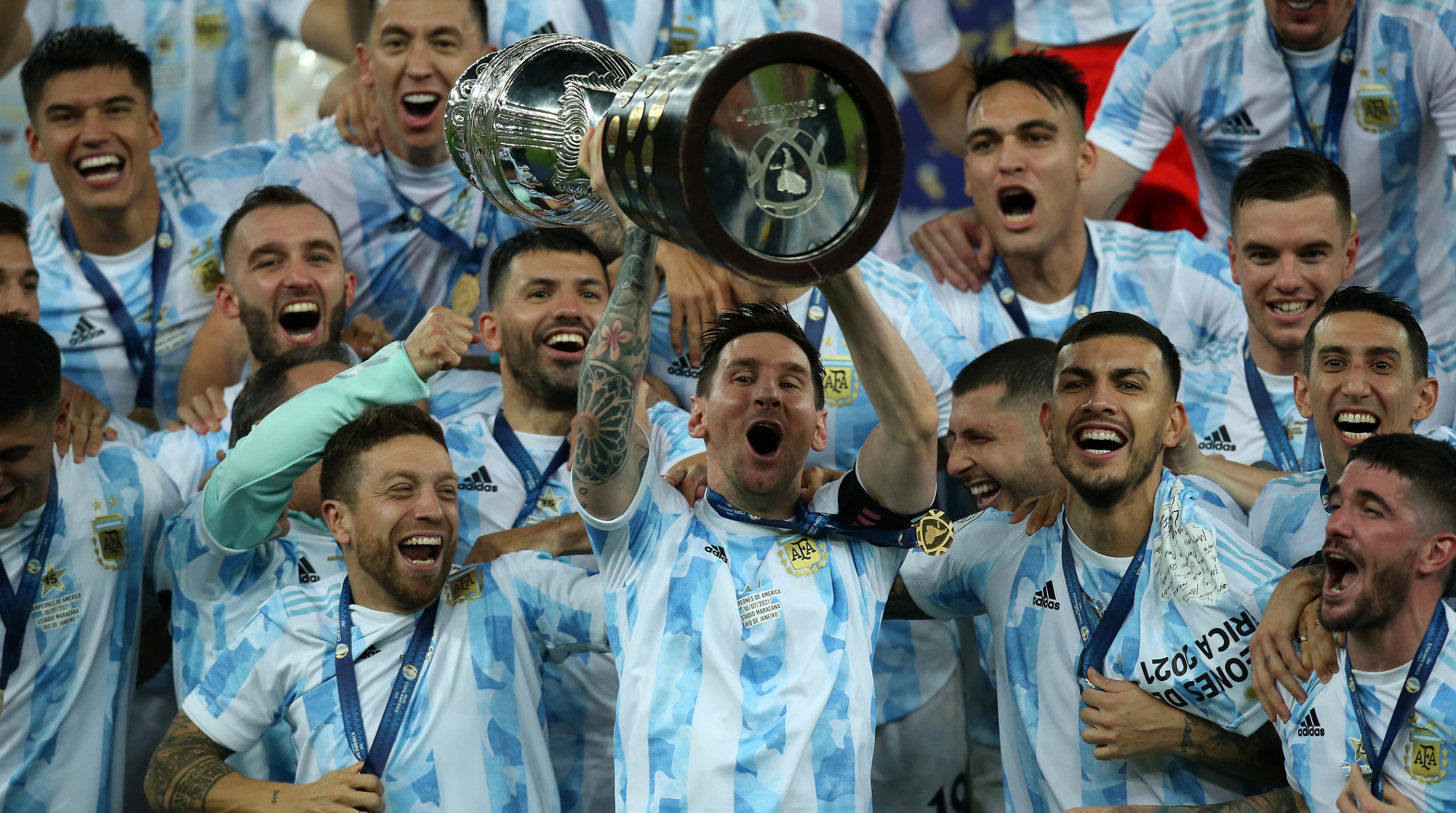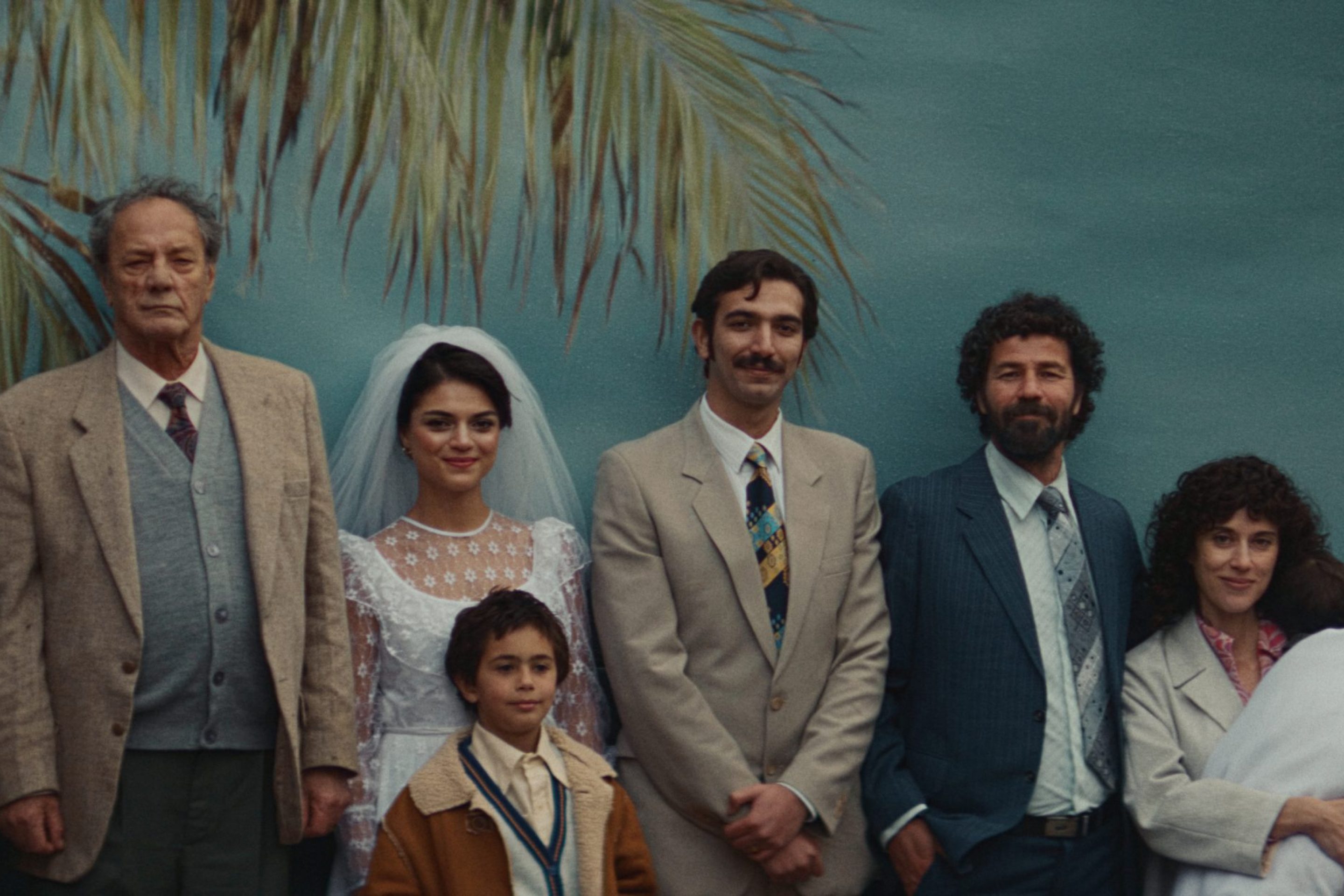Seven years ago, a miserable Lionel Messi walked out of Rio de Janeiro's Maracanã Stadium. Despite winning the Golden Ball, awarded to the best player at the World Cup, he had come short in his quest for a major trophy with Argentina, losing 1-0 in extra time to Germany. Messi didn't have his best performance in the final that day, and no one else on the Albiceleste stepped up to bring the trophy back to Argentina for the first time since 1986.
On Saturday night, Messi once again walked out of the Maracanã following a subpar performance in a major tournament final against a world soccer power, but this time, there was joy. In the same stadium where he suffered his worst defeat as a soccer player, Messi and the Argentines did what seemed impossible in the 2021 Copa América final: They beat Brazil, in Brazil, not because of the diminutive No. 10, but rather every player around him. Maybe that's how it always had to be.
Messi earned the Best Player Award, and along with Colombia's Luis Diaz finished as the top scorer of the tournament, but he didn't get on the scoresheet in the final. The only goal in the 1-0 win came courtesy of a gorgeous Rodrigo De Paul pass and an even more gorgeous touch and chip from Ángel Di María in the 22nd minute.
DI MARIA GIVES ARGENTINA THE LEAD 🇦🇷 pic.twitter.com/UnX9ao34ZP
— FOX Soccer (@FOXSoccer) July 11, 2021
The stats would be impressive for any other player, but they were simply the norm for Messi: four goals and five assists before the final, with a penalty shootout tally against Colombia in the semifinal. More than that, though, he controlled pretty much every game, dropping back further than he did for Barcelona to progress the ball forward before finding himself either hitting the final pass or scoring it. His run, close dribbles, and subsequent lay-off to Lautaro Martinez in the game against Colombia was Peak Messi. The man turned 34 during the tournament and is still capable of surprises; I'm not sure that any of his previous tournament performances were better than this one, which took place under haphazard conditions.
This Copa América was supposed to be a home tournament for Argentina, but because of COVID, CONMEBOL moved it at the last second from the friendly turf of Messi's home country to that of the most hated rival on the continent. Though the final was originally supposed to be in fellow host country Colombia, instead, it was off to Brazil, a team that Argentina hadn't beaten in a major tournament in 28 years. The last time that happened was the 1993 Copa América quarterfinal; Argentina won on penalties and went on to win the tournament, the country's last trophy before Saturday.
Perhaps that just makes it all the sweeter. Messi did not try to play down the circumstances of his team's win: “I had been close for other years and I knew it was going to happen. I am grateful to God for giving me this moment, against Brazil and in Brazil. I was saving this moment for myself.” Argentina-Brazil is the most heated soccer rivalry in South America, perhaps even the world. That hatred showed up through the foul count: By the final whistle, Argentina had committed 19 fouls to Brazil's 22.
In other words, it was a perfect CONMEBOL match. South American soccer is known for being rugged, and it was by design that so many attacking players were hacked down before gaining any momentum. Messi was no different, but even when he had room, he couldn't get going. Nursing what Argentina manager Lionel Scaloni said was a hamstring injury afterward, Messi was invisible for a majority of the game, played no part in the tournament-winning goal, and then missed a golden chance to seal the game late on. If Argentina had lost, this slip would have likely haunted Messi for a long time:
HOW WAS THIS NOT A GOAL
— FOX Soccer (@FOXSoccer) July 11, 2021
Messi nearly makes it 2-0 Argentina pic.twitter.com/ibeuHFiP7i
Instead, though, it ended up a footnote. That Messi won his major international trophy after a performance with a high-profile miss of his own seems fitting. He was never going to win a trophy alone. Soccer doesn't work that way, and Messi, for all his excellence, is just one player. Javier Mascherano almost helped carry Argentina in equal parts to Messi in that 2014 World Cup, but otherwise, this team relied to an unreasonable degree on Messi to create magic.
But on Saturday, it was De Paul who laid in a beautiful pass and also facilitated Messi's missed chance. It was Di María who, in one fluid motion, nestled that pass down and then chipped the ball into immortality. It was Emi Martinez, the hero of the Colombia penalty shootout, who came up huge with a couple of wonderful saves. It was everyone but Messi, yet no one had any delusions of why they were in a position to carry their captain.
This is what it means 👏
— FOX Soccer (@FOXSoccer) July 11, 2021
Messi is being tossed by his Argentina teammates pic.twitter.com/6LR9aHxhBf
That's why, when the final whistle blew, every Argentina player ran over to Messi, who dropped to his knees with a delirious smile on his face. It's why they picked him up and tossed him in the air. This had been another tournament for the ages for Messi, another example of his unrivaled skill and composure. That he barely contributed to the final didn't matter. He faltered, only to have his teammates pick him up, first figuratively and then literally.






